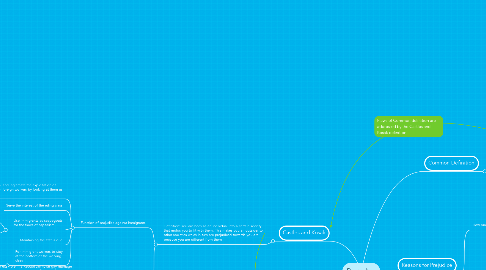
1. Social Prejudice
1.1. Definition:Unreasonable feelings, opinions, or attitudes, especially of a hostile nature, regarding a racial, religious, or national group
1.1.1. This form of prejudice has reduced blatant discrimination that used to be made by law and now use opinions of the majority to dictate the thoughts of the rest of society
1.1.1.1. For example in a Republican town gay marriage is looked down at versus a Democratic town advocates are fighting for gay marriage
1.1.1.2. In a primarily white town interracial dating is not acceptable
1.1.1.3. There was never a law against divorce however there has always been a religious dilemma depending on the family. Now days divorce is so common you would never hold a failed marriage against someone
1.1.2. Social prejudice allows change over time and different opinions in different generations
1.1.2.1. Gay marriage and domestic partnerships
1.1.2.2. Interracial Couples
1.1.2.3. Divorce and remarriage
1.1.2.4. Women in school and workforce
1.1.3. Laws don't dictate what group is superior now society does
1.1.3.1. In some cases society has more acceptance than a law states
1.1.3.1.1. Gay Marriage: Law is currently on it's way to supreme court but in most states same sex marriage is illegal but in many states there are more advocates for same sex marriage than opposers
1.1.3.2. In some cases laws are made to make people equal but there is still a superior group
1.1.3.2.1. Woman's Suffrage: Women now are at a place legally where we have all the same rights as men however society still views woman as the inferior race
2. Castles and Kosak
2.1. Definition: You are born as an individual into a certain society that molds you to fit with them. This makes you an outsider to other societies which in turn are prejudiced towards you are because you are different from them
2.1.1. Function of prejudice against immigrants
2.1.1.1. To conceal and legitimate the exploitation of labor from foreign workers by looking at them as inferior
2.1.1.2. Serve the interest of the ruling class
2.1.1.3. Use immigrants as scapegoats for the flaws of capitalism
2.1.1.3.1. Inadequite living conditions
2.1.1.3.2. Cannot guarantee safety to the working class
2.1.1.4. Maintaining the status quo
2.1.1.5. For immigrant workers to stay at the bottom of the working class
2.1.1.5.1. This stemmed out of fear from the natives that their jobs would be replaced and given to immigrants
2.1.2. Can only be done away with through a change of conditions and removal of insecurities of the native people
3. Sources
3.1. Wagstaff, Keith. "America's Gay-marriage Evolution: A Timeline [Updated] - The Week." The Week. The Week Publications, 03 May 2013. Web. 08 May 2013. <http://theweek.com/article/index/241550/americas-gay-marriage-evolution-a-timeline>.
3.1.1. "The American Gay Rights Movement: A Timeline." Infoplease. Infoplease, n.d. Web. 08 May 2013. <http://www.infoplease.com/ipa/A0761909.html>
3.1.1.1. Castles, Stephen, and Godula Kosack. Immigrant Workers and Class Structure in Western Europe. New York: Oxford, 1985. Print
3.1.1.1.1. Vogel, Matthias. “Class Lecture.” University of Oregon. Jacqua Center, Eugene, OR. 2 May 2013. Lecture.
4. Common Definition
4.1. The projection of ones own weakness and faults on to an outsider in an effort to safegueard the ego from inner conflict
4.1.1. Flaws of Defnition
4.1.1.1. Does not explain prejudice as a socially determined phenomenon
4.1.1.2. Instead portrayed as irrtional actions of an individual
4.1.1.3. Gives no clues as to how prejudice can eventually die off or be avoided
5. Reasons for Prejudice
5.1. How one was raised
5.1.1. Usually share same beliefs as parents
5.1.1.1. Political party
5.1.1.1.1. Republican
5.1.1.1.2. Democrat
5.1.1.1.3. No political background
5.1.1.2. What's acceptable and what isn't
5.1.1.2.1. Grades
5.1.1.2.2. Significant others
5.1.1.2.3. Morals and values
5.1.2. If non-strict parents can make own decisions and choices
5.1.2.1. Friends have greater influence so usually beliefs follow the social norm
5.1.3. If strict parents one must do what they're told
5.1.3.1. Can either cause resentment towards parents and believe the total opposite of them
5.1.3.2. Can cause child to be exactly like parents and no changes occur or progress made in getting rid of stereotypes
5.2. Opinions of friends and family
5.3. SImply because people are different
5.3.1. It is easier to point out how someone is different from you than it is to see how you are different than someone
5.3.1.1. This inclues superficial elements as well as personality flaws that people notice
5.3.1.1.1. Sexual orientation
5.3.1.1.2. Income level
5.3.1.1.3. Language spoken
5.3.2. Jealousy and resentment easily stem from the differences of the surface of people
5.3.2.1. Skin color
5.3.2.2. Religion
5.3.2.3. Body Type
6. Example: Same sex marriage
6.1. Legal Timeline
6.1.1. 1962-Illinois decriminalizes homosexual acts that occur in private
6.1.1.1. 1973- Homosexuality no longer considered a legal mental disorder
6.1.1.1.1. 1982-Wisconsin is the first state to outlaw discrimination based on sexual orientation
6.2. Social Timeline
6.2.1. 1924-Society for Human Rights founded in Chicago
6.2.1.1. 1951-Mattachine society founded as first national gay rights organization
6.2.1.1.1. 1956-Daugthers of Bilitis founded as first national lesbian rights organization
